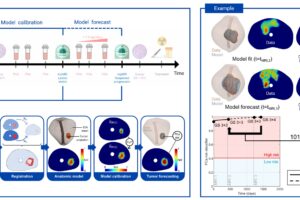As students start heading back to campus, there has been a lot of hype about a coming change in higher education, such as Massive Open Online Courses, or MOOCs, and the problems of rising tuition. It’s time that those who care about the future make advanced online learning not only bigger, but better.
At some point in our lives, we will all be a student, parent and/or teacher. Therefore we all have a responsibility to improve online education. We have a responsibility to our children who are growing up with the Internet as a substantial part of their waking lives. We have a responsibility to our institutions of higher education that generate new knowledge and point humanity towards a brighter, more just, happier future. We have a responsibility to society, including the private sector, who legitimately sees higher education as a path to the actualization of personal and societal potential. We need to lower costs and expand access because it is simply the right thing to do.
There are many detractors of online education with good reasons to be discouraged. While technology has become increasingly faster and easier to use, there are dangerous threats to personal identity and net neutrality. Disruption is throwing research and teaching into question and even its financial viability. Faculty members are polarized, some embracing, and others justifiably fearing a widening inequity. Administrators struggle to control or ride a train that has already left the station.
I know this because I’m on that engine. I’ve been administrating MOOCs and Synchronous Massive Online Courses, or SMOCs, for The University of Texas at Austin for the past 18 months, helping faculty and talented technicians produce digital experiences from flipped classrooms to enhanced e-books to for-credit online courses. It the most challenging work I’ve ever done and one wild ride. I wonder constantly where it’s going and scan everything for clues.
In June, a study by the Boston Consulting Group made a powerful case for the importance of knowing the online student audience, saying “successful institutions will understand how groups of students differ.” Good programs will find niches and specific roles to play, they suggest. Perhaps the future will hold an ever-changing mix of online and traditional learning, throughout an increasingly lifelong educational career.
This change must not be driven solely by market analysis. The bottom line of higher education should not be solely related to financial profit. It’s not only the number of students that we reach, nor their final grades, nor post-graduate salaries, but the genuine, constructive quality of student experiences, both online and off. Online education must be about active, authentic human communication, and we’re just scratching the surface about how to do meaningful online interaction well. If you’ve ever used Skype or Facetime, you know how powerful face-to-face video interaction across the Internet can be. Imagine if Facebook could be combined with learning systems, mirroring social interaction that is now exclusively part of the residential college experience. And what if instead of “first-person-shooter” video games, students spent time building virtual models and conducting real lab experiments, together through technology. All of these scenarios are already taking place: just not on a wide enough scale to give access to all.
We all have a responsibility to get better at creating and sharing knowledge openly, the fundamental product of education. Educational leaders and policymakers should minimize emphasis on standardized approaches and allow teachers and students the freedom to learn by doing. “Better” will likely mean an infinitely diverse education in the future, as unique as the teachers and students who will ultimately advance humanity.
Emily Ball Cicchini is a doctoral student in organizational communication and product manager at Liberal Arts Instructional Technology Services (LAITS) at The University of Texas at Austin. For more information about online courses at the College for Liberal Arts, click here.
A version of this op-ed appeared in the Austin American Statesman.



